At least ten barriers and barricades were listed by AyiboPost at the entrance to several neighborhoods in the metropolitan area of Port-au-Prince
Steeve Pierre is a member of the committee which installed a barrier in 2019 on rue Père Huc, on Route de Frères, in Pétion-Ville. The initiative had been in development since 2017 within the neighborhood committee.
In 2019, the growing influx of unknown passers-by in the area, combined with the increase in insecurity during “Peyi lòk”, worries residents.
So, the committee decides to strengthen itself and installs a barrier at the entrance to the neighborhood. “It was our only recourse. We knew that we could not count on the Police,” explains Pierre.
This initiative, although anchored for some time in Haiti, mainly in certain neighborhoods known to be upscale, has gained importance in recent years in the metropolitan area of Port-au-Prince, in a context where armed bands are tightening their grip on localities previously spared.
At least ten barriers and barricades were listed by AyiboPost at the entrance to several neighborhoods in the metropolitan area of Port-au-Prince, notably in Nazon, Turgeau, Delmas, Pétion-Ville, Pacot, Croix Desprez, Belle -city, etc.
After the attacks by armed bandits in the town of Debussy in April 2023 and those against the town of Carrefour-Feuilles in August, the residents of Croix Desprez became afraid and thought of installing a barrier at the entrance to their neighborhood.
A barrier is installed at Haut Turgeau, at the entrance to the section which leads to Quisqueya University.
The initiative actually sees the light of day at the beginning of 2024.
Loovensky Chéramy has lived in the area for two years. The young student protests against the fact that people are forced to leave their homes. But remains skeptical about the effectiveness of the initiative.
“The paradoxical thing is that the very presence of the barrier constantly reminds me that there is something wrong. As a result, it makes me more and more anxious,” explains Chéramy.
Moreover, he continues, “all this adds to the fact that deep down, I know very well that I cannot be safe anywhere”.
Chéramy recalls the assassination of President Jovenel Moïse at his home in July 2021.
“Instead of feeling safe, it makes me feel like I’m in a prison,” says Sara, another resident of Croix Desprez, referring to the establishment of strict rules on the time at which people can go out. or go home.
“Behind the barrier, I don’t feel free to move,” says the young lady.
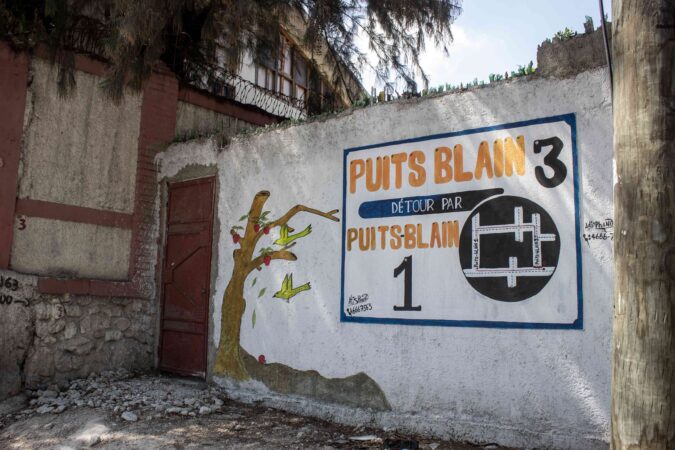
At the entrance to Puits-Blain 3, on Route de Frères, residents have erected a wall with only a small barrier for pedestrians.
For other residents, knowing that the gate closes in the evening before going to bed provides a feeling of security. This is the case of Steve Pierre.
“It’s not the most effective solution, but it’s calming,” says Pierre.
To build this barrier, they contributed 2000 or 3000 gourdes.
In several neighborhoods, residents rely on brigades responsible for monitoring the entry and exit of individuals.
It is therefore risky to venture beyond the limits imposed at a late hour without being able to clearly identify yourself.
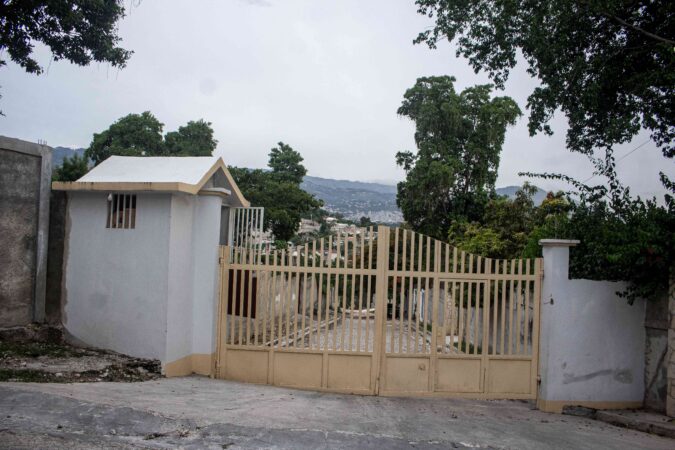
View of a barrier at the entrance to a cul-de-sac in Vivy Mitchell.
Steeve Pierre remembers this recent episode where a man living on rue Père Huc came back to knock on the barrier at two in the morning, without having warned that he was going to come home so late. Because normally, the barrier closes at ten p.m.
“It created panic. But we immediately resolved this matter and took steps to ensure that it would not happen again,” explains Pierre.
Between April and August 2023, the Center for Analysis and Research in Human Rights (CARDH) counts more than 200 people killed, lynched or burned in the metropolitan area of Port-au-Prince as part of the popular revolt movement called “ Bwa Kale.
In several neighborhoods, residents launched a hunt for strangers and individuals suspected of colluding with armed gangs.
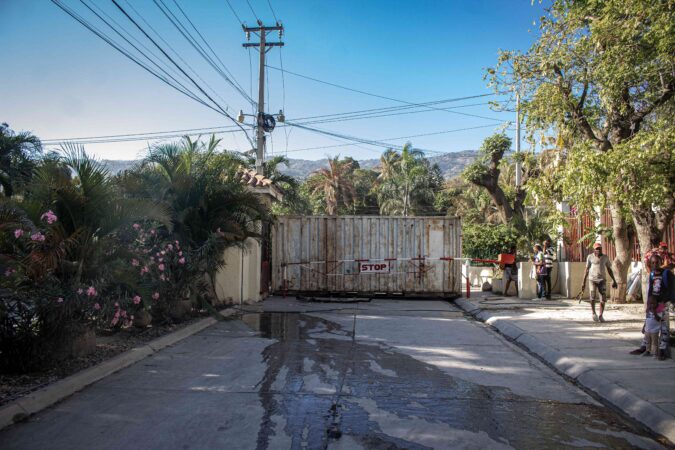
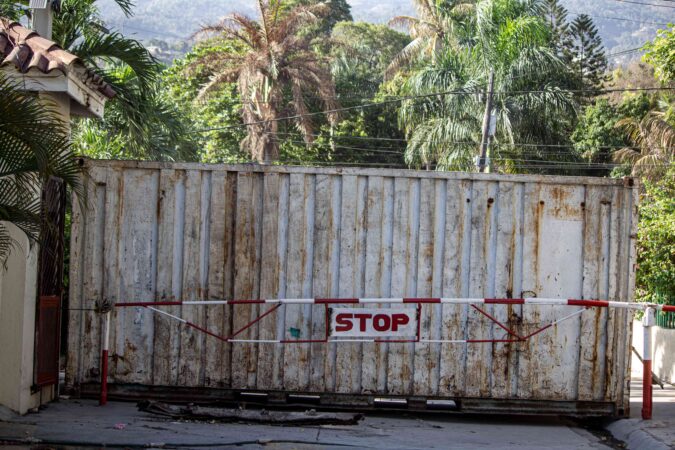
At the Crossroads leading to the entrance to Belvil, well before March 19, 2023, residents installed a container as a barrier against insecurity.
Several barriers were observed in Turgeau.
Jean Baptiste Monjoly has been observing this since April 2023 at Cité Gabriel, where he lives.
People helped install this device to prevent any gang attacks.
As soon as an event occurs in the surrounding area, explains Monjoly, “the residents of the Gabriel city mobilize, their eyes fixed on the barrier, ensuring that no intruder can slip in to find refuge.”
Although it is quite high and sturdy, the young man does not believe that the barrier is a definitive solution against bandits. “However, in the event of attacks, it can give an alert,” he explains to AyiboPost.
A committee has been established to manage this barrier, with a dedicated emergency number available if necessary during the night.
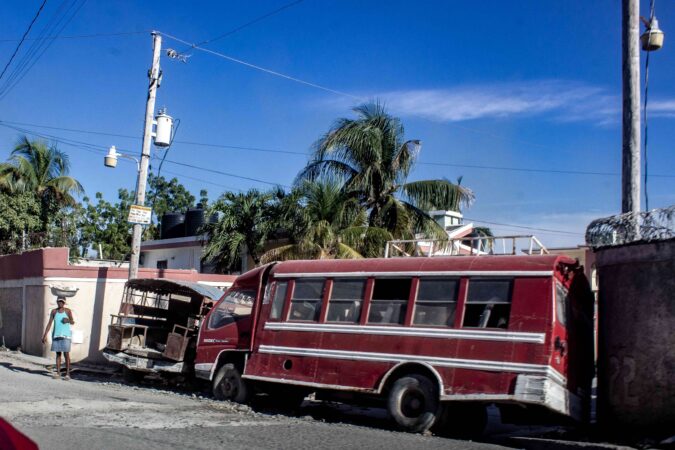
At Delmas 33, a road which leads to MaÏs-Gaté, not far from the Visa Lodge Hotel area, is blocked by broken down or dilapidated buses.
For sociologist Kesler Bien-Aimé, the construction of barriers in certain working-class neighborhoods indicates that residents are taking charge of their own security, in a context where the State is failing to fulfill this mission.
“It is an increasingly visible phenomenon, but which was already in progress in certain places in the country,” he recalls.
Previously, certain residential neighborhoods like Juvénat, Pacot, etc. where wealthy class people live, built barriers with the aim of barricading themselves inside and thus ensuring a certain autonomy from the rest of the inhabitants.
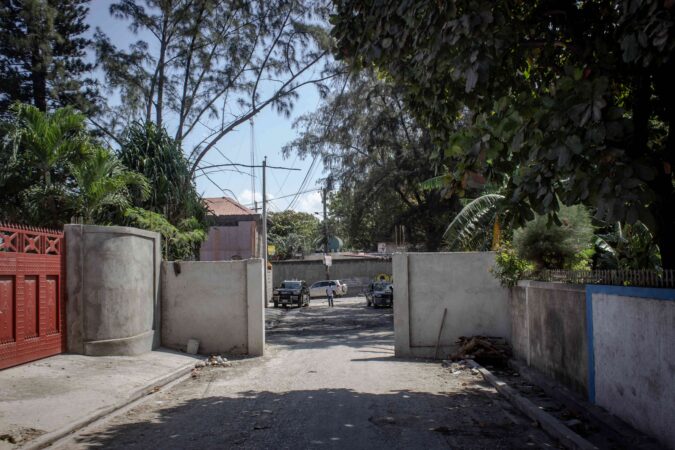
At the entrance to the Djoumbala crossroads, on TA.G-Jacob street, a barrier is about to be installed.
This model is reminiscent of the “gated communities” present in France and the United States.
“It is also a way of indicating their social difference compared to other less fortunate classes,” explains the sociologist.
For Bien-Aim, what is happening with working-class neighborhoods is indicative of a profound change which increasingly challenges living together between social groups, beyond the small groups formed to defend themselves. against insecurity.
AyiboPost attempted to contact the Haitian National Police (PNH) to obtain their perspective on this phenomenon, but did not respond before publication of this article.
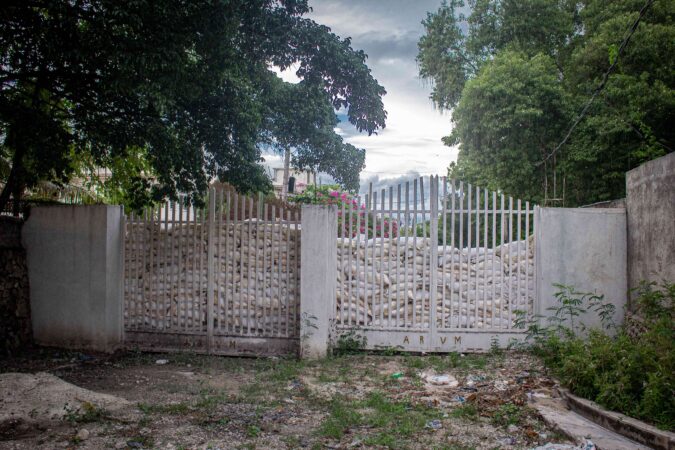
Bags containing sand are installed behind a barrier to prevent projectiles heading towards a dead end in Vivy Mitchell.
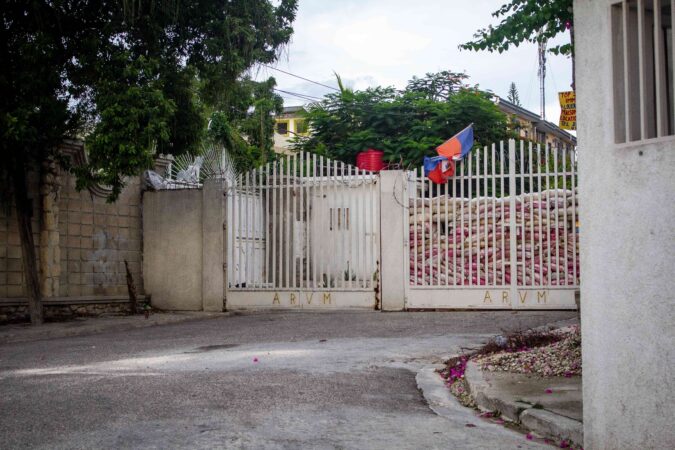
A dead end in Vivy Mitchell barricaded by a barrier reinforced with sandbags.
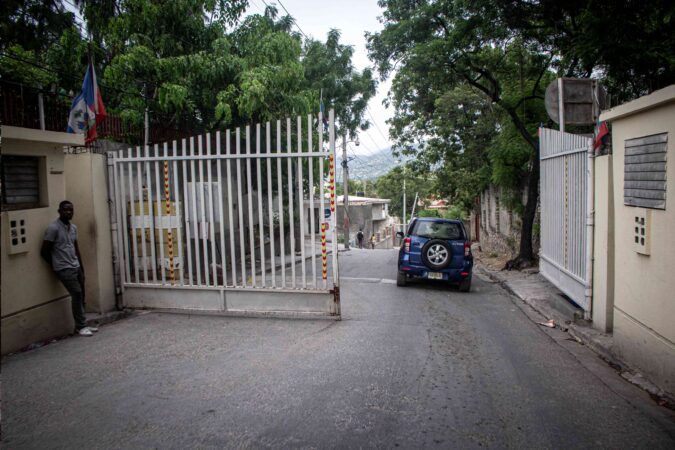
The main barrier to entry to Vivy Mitchell.
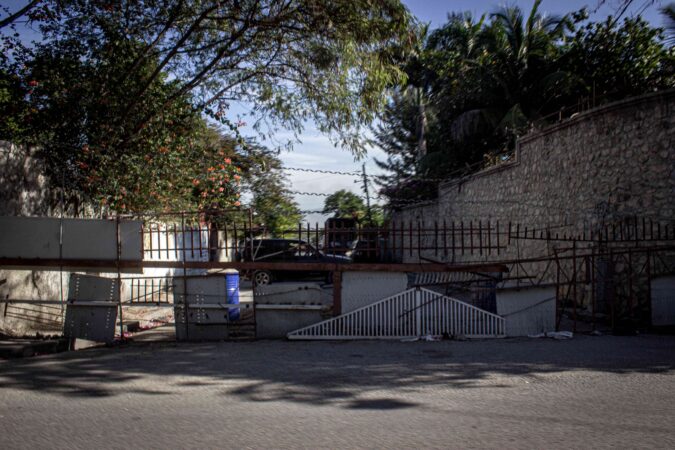
At Delmas 33, a road leading to Maïs-Gaté, not far from the Visa Lodge Hotel area, is blocked by wrought iron barriers and other imposing objects.
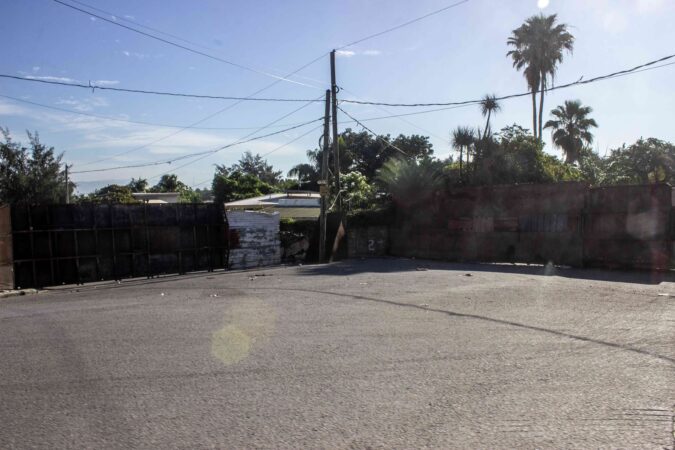
At Delmas 33, a road which leads to Maïs-Gaté, not far from the Visa Lodge Hotel area, is blocked by broken down or dilapidated buses.
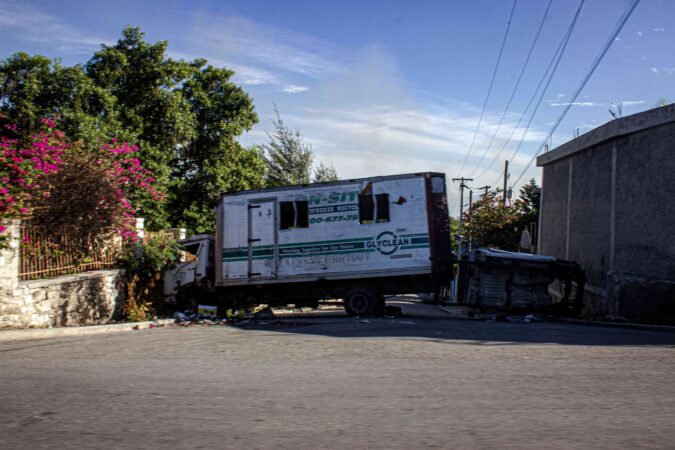
At Delmas 33, a road which leads to Maïs-Gaté, not far from the Visa Lodge Hotel area, is blocked by broken down or dilapidated buses.
Par Wethzer Piercin et Jean Feguens Gifts
Cover image: A barrier is installed at Haut Turgeau, at the entrance to the section which leads to Quisqueya University. | © Jean Feguens Regala/AyiboPost
Keep in touch with AyiboPost via:
► Our channel Telegram : Click here
► Our Channel WhatsApp : Click here
► Our Community WhatsApp : Click here











